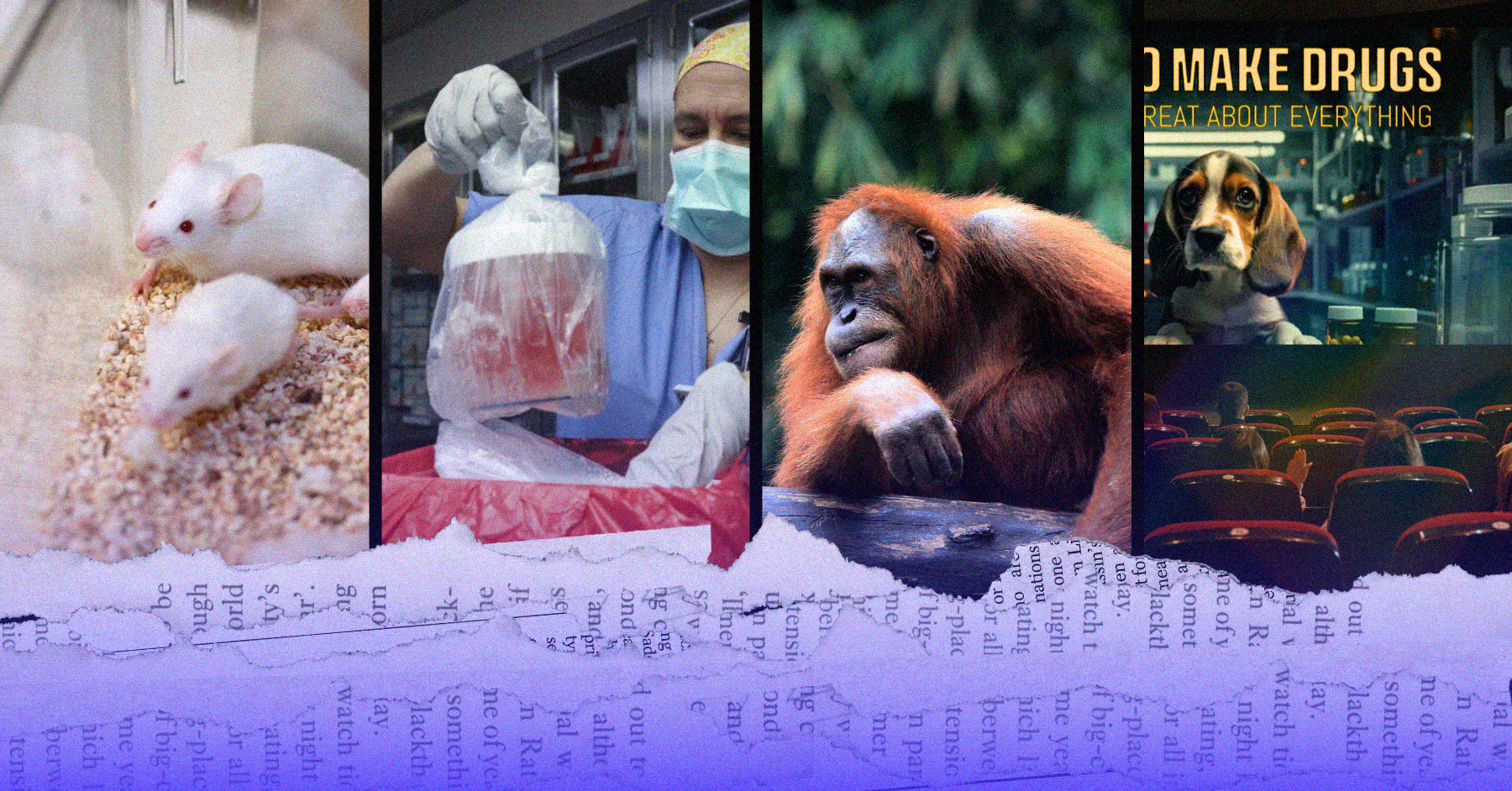
Here’s a roundup of this week’s biggest news stories related to animal research—all the recent media coverage you need to know right now to be the most effective activist for animals in labs.
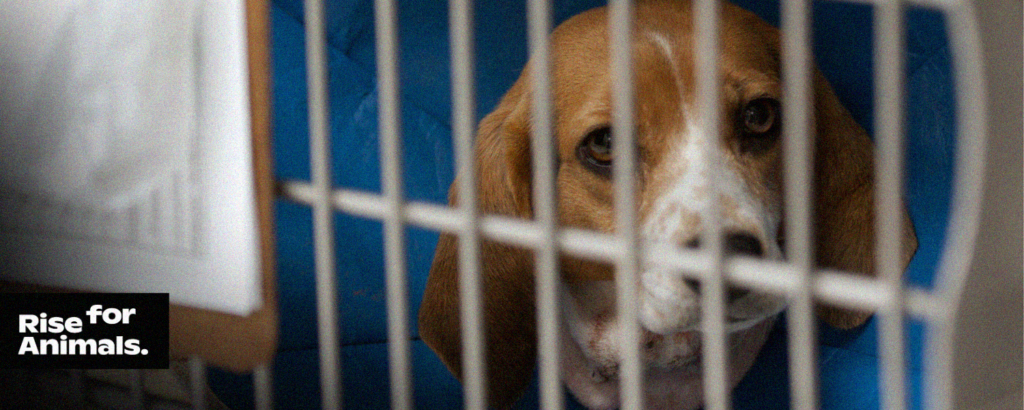
“Mad” and “Ouch” Among the Words Animals in Labs Would Use?
Rise for Animals, 5/14/2024
Animals — from bees to whales — have long been proven to communicate, share information, and exchange ideas with one another in myriad ways. Indeed, “behaviorists are becoming convinced that the ‘inner processes of many animals are as complex as those of humans,’….”
Why then, are some researchers so fixated on anthropocentric investigations into whether animals can use the human spoken word? 📰 Full Story →

Monkeys Can Learn to Tap to the Beat of the Backstreet Boys
James Woodford, 5/10/2024
“Monkeys can learn to tap along to a tune, suggesting a sense of rhythm may be more widespread in the animal kingdom than was previously thought”
“Until now it was widely believed that the ability to synchronise movements with music is limited to species with complex vocalisations, such as humans and some songbirds.” However, a new study “suggests human musical ability is not so unusual” in other species. 📰 Full Story →
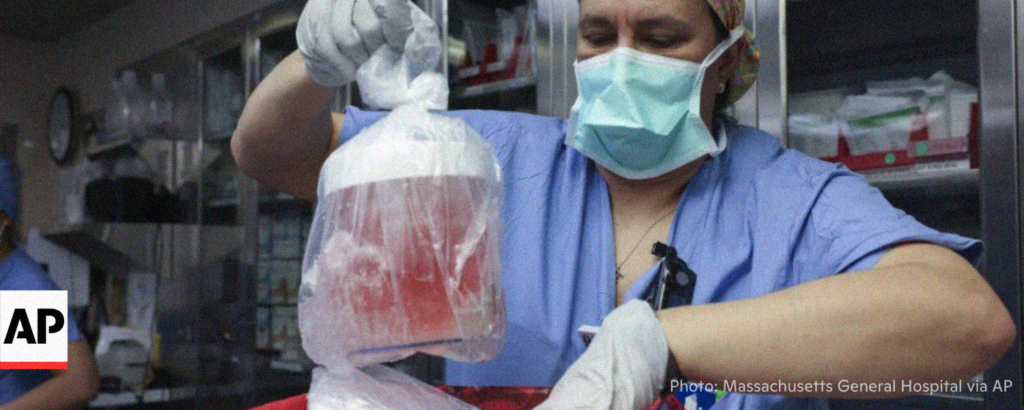
First Person to Receive a Genetically Modified Pig Kidney Transplant Dies Almost 2 months Later
The Associated Press, 5/11/2024
“The first recipient of a modified pig kidney transplant has died nearly two months after he underwent the procedure . . . Surgeons said they believed the pig kidney would last for at least two years.”
“The Weymouth, Massachusetts, man was the first living person to have the procedure. Previously, pig kidneys had been temporarily transplanted into brain-dead donors. Two men received heart transplants from pigs, although both died within months.”
“Xenotransplantation refers to healing human patients with cells, tissues or organs from animals. Such efforts long failed because the human immune system immediately destroyed foreign animal tissue. Recent attempts have involved pigs that have been modified so their organs are more humanlike.” 📰 Full Story →
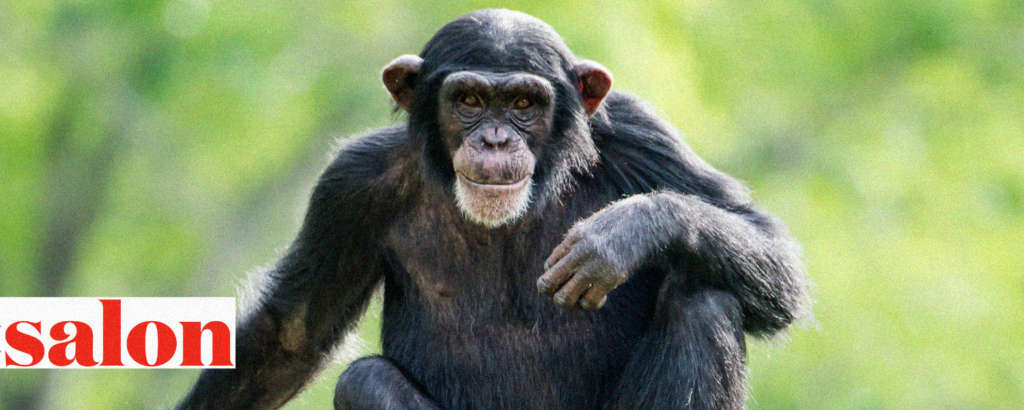 Chimps Continue Learning Tool Use Even as Adults, Study Finds
Chimps Continue Learning Tool Use Even as Adults, Study Finds
Matthew Rozsa, 5/13/2024
“ . . . while researchers have known for decades that chimpanzees can use tools, they did not know whether these primates are like humans in being able to continue learning throughout their lifetimes.”
“According to the recent study published in the journal PLOS Biology, the wild western chimpanzees were able to develop their use of stick tools into adulthood” and “became increasingly adept as they aged at utilizing various finger grips to handle the sticks they used for retrieving food.”
“This study is only the latest in a long series of papers that repeatedly amaze humans with the intelligence of their primate relatives.” 📰 Full Story →

UConn Acknowledges ‘Serious Non-Compliance’ After Halting Experiments on Rabbits
Emily DiSalvo, 5/14/2024
“ . . . UConn’s Institutional Animal Care and Use Committed admitted ‘serious noncompliance,’ leading to the suspension of the experiment. The procedures for the experiment, officials stated, had been given prior approval to attach a device under the rabbits’ skin before staff members made changes to the procedure and attached the device externally without gaining further permission.
“U Conn officials would not elaborate on the exact nature of the experiment that was being performed.” 📰 Full Story →

When Will America Get Better Sunscreens?
Michael Scaturro, 5/14/2024
“The [FDA]’s ability to approve the chemical filters in sunscreens that are sold in countries such as Japan, South Korea, and France is hamstrung by a 1938 U.S. law that requires sunscreens to be tested on animals and classified as drugs, rather than cosmetics as they are in much of the world. So Americans are not likely to get those better sunscreens – which block the ultraviolet rays that can cause skin cancer and lead to wrinkles – in time for this summer, or even the next.”
“‘It’s really about giving the U.S. consumer something that the rest of the world has. People aren’t dying from using sunscreen. They’re dying from melanoma.’ Every hour, at least two people die of skin cancer in the United States . . . And unlike many other cancers, most forms of skin cancers can largely be prevented – by using sunscreens and taking other precautions.”
“‘The sunscreen issue has gotten people to see that you can be unsafe if you’re too slow,’ . . . ‘The FDA is just incredibly slow. They’ve been looking at this now for literally 40 years. Congress has ordered them to do it, and they still haven’t done it.’” 📰 Full Story →
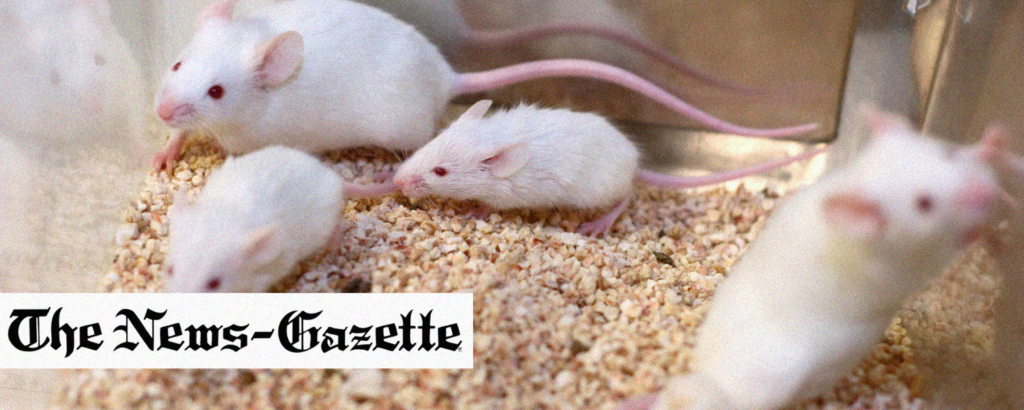
Animal-Rights Group Issues Complaint Against UI in Death of 4 Lab Mice
Samuel Lisec, 5/14/2024
“An animal-advocacy group has issued a complaint against the University of Illinois that argues one of its investigators should no longer be allowed to work with animals after a federally funded experiment involved the death of four mice without prior approval.”
“ . . . UI’s Institutional Animal Care and Use Committee became aware in October 2022 of an ‘adverse event’ report from animal-care staff expressing welfare concerns about four lab mice found dead or needing to be euthanized. The mice had been fed the hormone Tamoxifen in order to study gene silencing within cardiac tissues, and the lead investigator later confirmed that they were ‘allowing mice to die intentionally for purposes of generating survival curves.’ However, the protocol the UI’s animal-care committee approved for the experiment had not included death of the mice subjects as a potential outcome . . . the UI animal-care committee requested that the lab’s lead investigator amend their experiment protocol to clarify clinical outcomes and justify death as an endpoint for the mice.” 📰 Full Story →

Scientists Unlock Mysteries of Orangutan Communication
EurekAlert!, 5/14/2024
“‘Over the course of three years, we accumulated hundreds of long call recordings, revealing a fascinating array of vocal diversity.’”
“The research not only deepens our understanding of orangutan communication but also underscores the broader concept of vocal complexity in the animal kingdom.” 📰 Full Story →
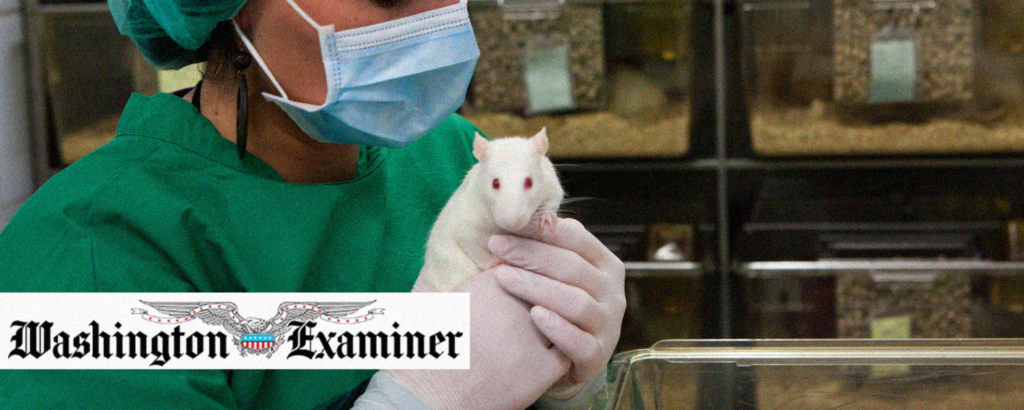
EPA Brings Back Animal Torture for Environmental Justice
Hannah Cox, 5/14/2024
“ . . . the EPA is launching a new campaign to torture animals – all in the name of social justice.”
“The experiments [that launched the previous campaign to ‘phase out’ the EPA’s animal testing by 2035] were heinous and included forcing animals to breathe diesel exhaust and smog, force-feeding animals lard and exposing them to air pollution, blasting animals with loud noises, and stress-testing pregnant animals with light and noise and electroshock of their babies.”
“But now . . . it seems the Biden EPA has completely abandoned the plan to end animal tests and is back to killing previously retired lab bunnies.”
“Animal torture and deceiving Congress are bad enough, but the reasons for these experiments are what make all of this really shocking. It appears that the EPA is carrying out these experiments at the behest of over three dozen environmental and social justice groups . . . ” 📰 Full Story →
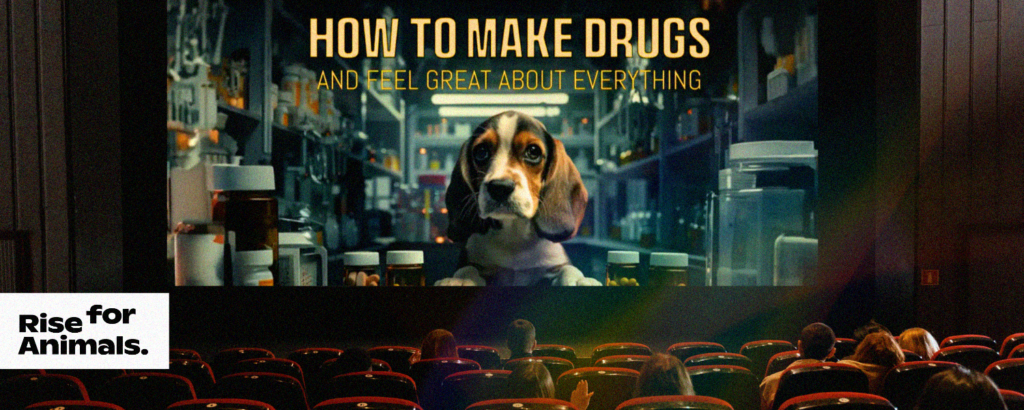
How to Make Drugs… and Free Animals! It’s Movie Time!
Rise for Animals, 5/16/2024
There’s a new movie about animal research in the works! How to Make Drugs and Feel Great About Everything, from the acclaimed makers of Cowspiracy and What the Health, is set to explore the (lack of) ethics of using animals in research and testing. The movie aims to help “create a world where science is more effective, medicine helps more people, and less animals are in laboratories”.
Rise for Animals is a proud sponsor of How to Make Drugs and Feel Great About Everything. 📰 Full Story →